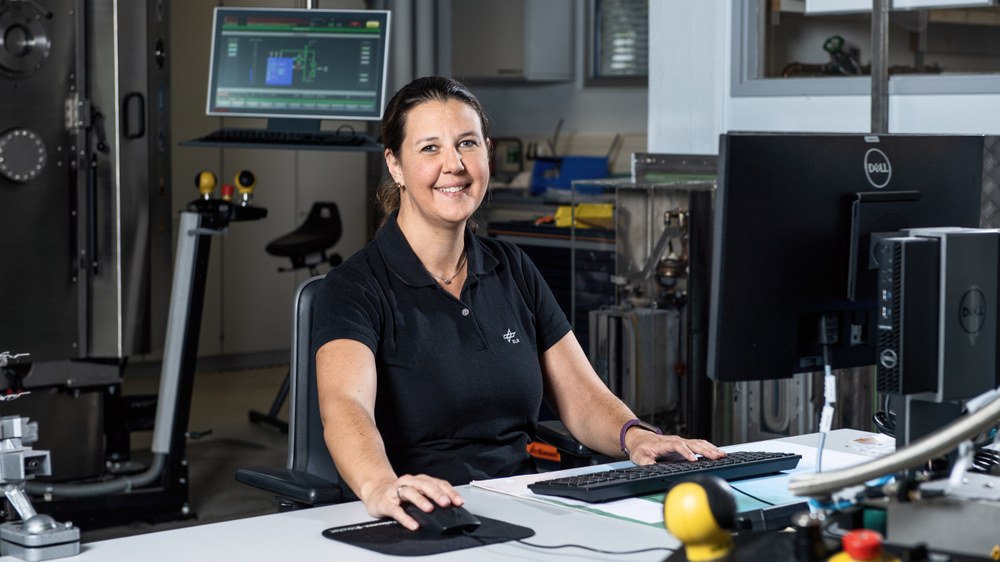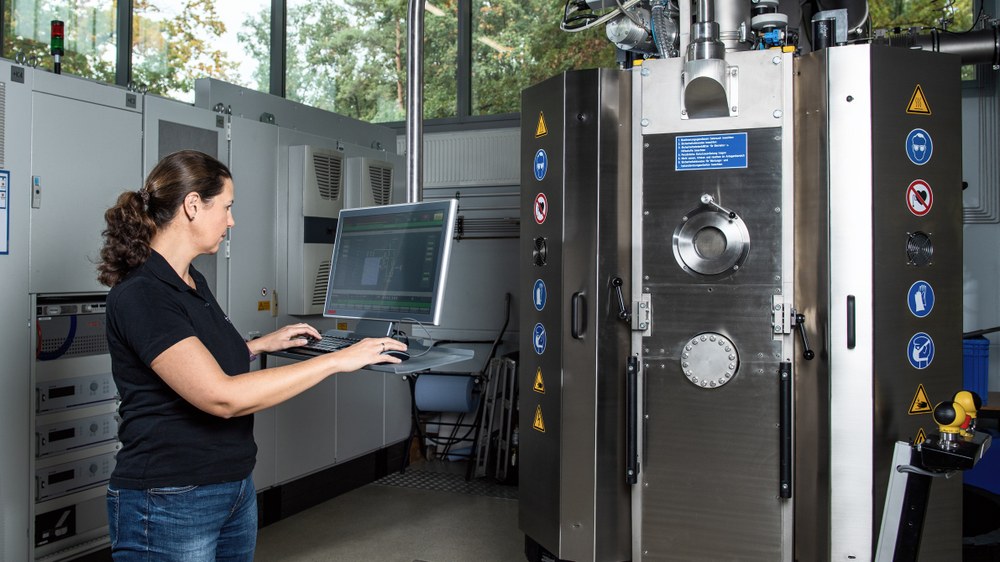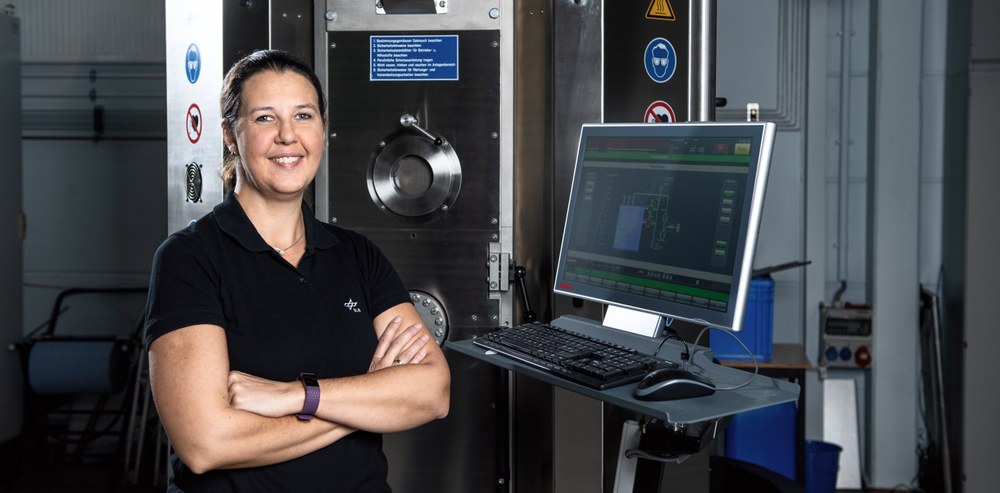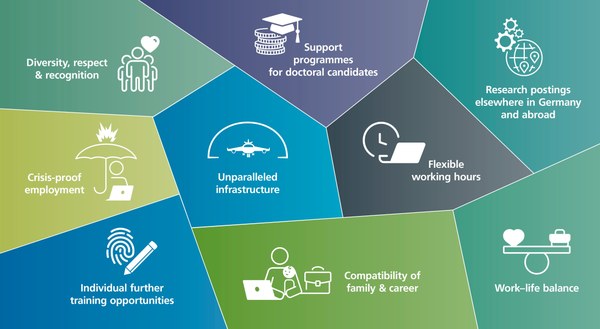Nadine Laska
Field of study: Chemistry
Now: Institute of Materials Research
Nadine Laska studied chemistry and joined the DLR Institute of Materials Research in Cologne as a doctoral student in 2010.
She is now a research assistant in the High Temperature and Functional Coatings department. She gives an insight into her work in this interview.
Nadine, what do you look forward to when coming to work in the morning?
Nadine: After a long period spent working from home, I am still happy to meet as many of my colleagues as possible in person at the Institute. A coffee or lunch together makes it easier to discuss the day's work, projects and challenges. Ultimately, a personal chat about private matters such as family and children is also indispensable for a healthy work environment.
What are you researching or working on?
Nadine: I work on the production of protective coatings for high-temperature applications, such as materials used in the turbine blades in aircraft engines. The transition to new propulsion systems or fuels such as hydrogen poses entirely new demands on the materials used and thus also on their protective coatings.
„The transition to new propulsion systems or fuels such as hydrogen poses entirely new demands on the materials used and thus also on their protective coatings“
What does your typical working day involve?
Nadine: After checking my email inbox in the morning, I usually take a short tour of the laboratories to seek personal interaction with colleagues on site. We also run many material tests at temperatures over 1000 degrees Celsius under cyclic conditions overnight or even over the weekend. Cyclic means that the materials are automatically moved out of the hot furnaces after certain times, cooled down to room temperature within a few minutes and then moved back into the hot furnace. It is always exciting to see if these tests have been completed without any problems, if the materials or layers are still holding up or if material failure is already visible due to layer chipping or corrosion.
In connection with this, I am increasingly supervising doctoral candidates and students in their doctoral theses or dissertations. Thus, technical discussions and reading papers, reports and publications make up a large part of my work. I also enjoy increasingly taking on administrative tasks; they provide me, as a chemist, with completely new insights, which are important for understanding the work processes and structures at DLR.

Where and how is your work being used?
Nadine: The use of lighter materials or new fuels in aircraft contributes to more sustainable aviation and ultimately reduces its contribution to climate change. For this, protective coatings are necessary to enable materials to be used at higher temperatures and/or to extend the service life of components such as turbine blades. This leads to a more sustainable use of resources and raw materials.
„A small but crucial contribution to reducing the impact of the aviation industry on climate change“
What are the highlights of your work?
Nadine: From a technical point of view, one highlight is achieving the longest possible service life of layered materials after extensive testing and inspection periods: once again making a small but decisive contribution to reducing the impact of the aviation industry on climate change.
Positive funding decisions are also always a great highlight, as they are associated with new projects or possibly even new employees.
Finally, cohesion within the department and the institute is also important. Small joint events or activities are therefore very much appreciated and show good teamwork among colleagues.

What special skills can you make good use of in your job?
Nadine: I would describe myself as a communicative person and team player who likes to take care of practical and organisational tasks in order not to lose sight of the overall goal. During my chemistry studies, I was able to acquire a distinct analytical way of thinking. This helps me to approach different problems systematically, not only those of a technical nature, and thus also to keep my stress levels to a minimum.
Leave us a final thought.
Nadine: I really enjoy having personal contact with my colleagues again. However, as a mother of two children, the opportunity to work from home is very beneficial. Before the teleworking scheme at DLR, I could only work part-time, but thanks to the flexibility I have gained, I have recently returned to working full-time, as I can now balance my working hours with childcare. The often time-consuming commute to DLR is no longer necessary on a daily basis. This has also opened up more career opportunities for me that would not have been possible before.




